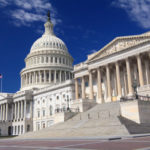 All animals are equal, but some animals are more equal than others.”
All animals are equal, but some animals are more equal than others.”
― George Orwell, Animal Farm
Question: While this country slouches through its seven years of economic malaise, guess which segment of our population is thriving?
Answer: The apparatchiks, functionaries, bureaucrats, civil servants, occasionally referred to as “bean-counters”, and comfortably ensconsed [quite well, thank you!] in our nation’s capital.
If you doubt that, check out the recent online Wall Street Journal article titled “The Sweet Gig of Being a Bureaucrat” by Mac Zimmerman, director of policy at Americans for Prosperity.
Here are some snippets from the article that are sure to make your blood boil:
The average federal worker’s compensation is worth $119,934, nearly 80% higher than the average in the private economy;
***
In a report released last month, Cato Institute budget analyst Chris Edwards calculated that the average federal employee earned $84,153 in 2014—roughly 50% more than the average worker in the private economy. When you include benefits like health care and pensions, the average federal worker’s compensation rises to $119,934—nearly 80% higher than everyone else. “The federal government has become an elite island of secure and high-paid employment,” Mr. Edwards wrote, “separated from the ocean of average Americans competing in the economy.”
***
Moreover, the number of federal employees salaried at more than $100,000 has grown by nearly 10% in the past five years,[1] to more than 300,000.
***
The 1,000 best-paid federal workers make a minimum of $216,000, with most of the highest echelon working at Veterans Affairs.[2]
***
The total cost to taxpayers of federal wages and benefits clocks in at $260 billion. Much of this is concentrated in and around Washington, D.C.—and it shows. Six of the 10 richest counties in the country surround the nation’s capital, according to the Census Bureau. The median household income in these counties ranges from about $98,000 to $118,000, excluding benefits.
***
It is nearly impossible to get fired from a job in D.C. A 2011 analysis by USA Today found that at many federal agencies—the Environmental Protection Agency, the Department of Housing and Urban Development, among others—you’re more likely to die on the job than lose it. [Underscore mine.]
Gosh, I wonder if Portland’s city government has the same problem? You bet it does. Here is the salary database. Once you pull out the cops and firefighters, who deserve every penny they earn, you see a lot of bureaucrats with fancy titles, feeding at the public trough. And thanks to their unions[3], just like in D.C., it’s a cradle-to-grave gig. Think about this the next time you hit a pothole on the way to work.
So now you know how the game’s played. If meritocracy isn’t your thing, because you don’t have the initiative to survive in the Real World – where you eat what you kill – you can always become a loyal soldier in the rank and file of some gray-walled bureaucracy.[4] The pay and perks are great, and you’ll more likely die on the job, than to lose it. ~PCQ
_____________________________
[1] According to the article, September 2015’s median household income was slightly above $56,000, i.e. “…only 1% higher than in 2009 when the recession officially ended, and 0.5% lower than before the recession began. Meanwhile, consumer prices increased 10.6% over the past six years.”
[2] The Department of Veteran’s Affairs?! The same agency that continues to be mired in the unconscionable patient delay scandals? Hmmm. Apparently, the Peter Principle is alive and well inside the Beltway.
[3] These unions are at the heart of the problem. With the money they secure through their enforced dues structure, they wield huge political clout; this ensures their members’ high wages and perks, and the union’s very existence. This may be coming to an end, however. The U.S. Supreme Court is scheduled to hear Friedrichs vs. California Teachers Association, which will likely result in prohibiting unions from requiring non-members to pay “agency fees”. As explained at SCOTUSblog, here: “Many workers across the nation do not want to join a union, and they generally have the legal right to refuse. But, for labor unions in both the private sector (since at least 1944) and the public sector (since 1977), the organizations can charge non-members a monthly fee that is supposed to compensate the union for activities that directly benefit those workers, too. (¶) This fee is less than what the members pay each month, and unions are supposed to calculate the non-members’ monthly fee (a so-called “agency fee”) so that it only covers those workers’ share of what the union does to represent all workers on wages, hours, and conditions in the workplace (the bargaining issues).” [So what are the unions doing, with the shadow of Friedrichs decision looming? Plenty. Stay tuned for my post on this issue.]
[4] The recent hit piece by the American Action Network here gives a distinctly Orwellian flavor to the CFPB’s activities, that isn’t that far from the truth; it has become the Big Brother of the federal bureaucracy, with data collection practices on a scale like nothing we’ve seen before.


